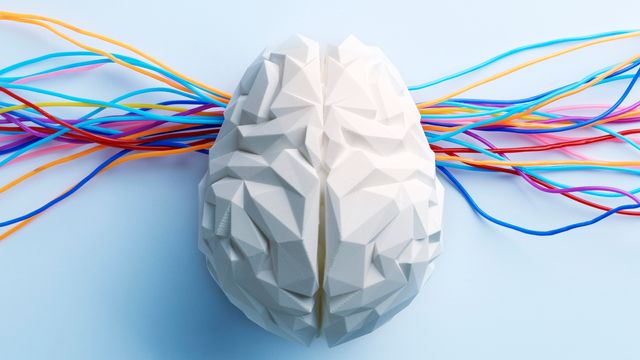Molecular Memory and Quranic Concepts of Divine Record-Keeping
In the age of advanced biotechnology and cognitive neuroscience, the idea that every action, thought, or biological change leaves a lasting imprint has become more than just a theory. The emerging field of molecular memory suggests that our cells may store information over time in a way that mirrors divine record-keeping as described in the Quran. The convergence of modern science and sacred scripture opens up a remarkable conversation between biology and theology.
The Concept of Molecular Memory in Science
What Is Molecular Memory?
Molecular memory refers to the ability of biological molecules—especially DNA and proteins—to store, process, and transmit information over time. This information can affect cellular behavior and even be passed down through generations.
How DNA Stores Biological History
Our DNA doesn't just code for our physical traits—it can also reflect environmental and emotional experiences. This is evident in the study of epigenetics, where gene expression changes in response to external stimuli.
Protein Folding and Memory Traces
Proteins that fold and change shape in response to stimuli can act as biological memory units. These folding patterns can persist and influence cell function, acting as molecular "records."
Quranic Verses About Divine Record-Keeping
The Book That Records All
The Quran frequently mentions a "Book" in which everything is recorded. In Surah Al-Kahf (18:49), it states: "And the Book will be placed, and you will see the criminals fearful of that which is [recorded] therein."
Angels As Recorders
Surah Qaf (50:17–18) mentions two angels assigned to each person, writing down every word and deed, illustrating the concept of constant divine documentation.
Nothing Is Left Unwritten
In Surah Al-Zalzalah (99:7-8), the Quran asserts that not even the weight of a mustard seed escapes the divine record, symbolizing absolute detail and accuracy.
Cellular Memory vs. Spiritual Accountability
Biological vs. Moral Memory
While molecular memory captures biological history, divine record-keeping encompasses moral actions and intentions. The two ideas may operate on different planes, but both suggest that nothing is truly forgotten.
Human Free Will and Its Traces
Both the Quran and science acknowledge the agency of human beings. Choices we make not only affect our spiritual standing but may also leave cellular or genetic marks.
Parallel Recording Systems
Science suggests we carry memory in our bodies, while the Quran teaches we are surrounded by angels recording our actions. These dual systems mirror each other intriguingly.
Epigenetics and the Transfer of Behavior
Epigenetic Inheritance
Epigenetics shows that stress, trauma, and lifestyle choices can alter gene expression. These modifications can be inherited, suggesting that actions do indeed have long-term biological consequences.
Quranic Support for Intergenerational Consequences
The Quran speaks of nations being held accountable across generations. This could symbolically align with how actions leave traces passed down through family lines.
Mind, Body, and Soul Connection
Islam always promotes a holistic understanding of the human being—mind, body, and soul. Molecular memory and divine record-keeping affirm this unity.
Quranic Symbolism and Scientific Parallels
- The Pen (Al-Qalam) mentioned in the Quran symbolizes writing and memory, much like DNA records cellular history.
- Light (Noor) is used as a metaphor for guidance; in science, it's essential for imaging cellular structures and understanding molecular changes.
- The concept of the Heart knowing truth aligns with recent discoveries that the heart has its own neural network influencing memory and emotion.
- Surah Al-Hashr (59:19) discusses forgetfulness of the self, which parallels the way genetic information can be silenced or forgotten by epigenetic factors.
Implications for Personal Responsibility
- Molecular memory suggests your body remembers; the Quran teaches that your actions are never lost.
- Accountability in Islam is both spiritual and practical—your life leaves lasting impressions.
- This perspective encourages mindfulness in daily decisions, knowing both God and biology keep track.
- Such knowledge can inspire repentance and reform, aligning physical health with spiritual well-being.
Lessons for Modern Muslims
- Understanding molecular memory can deepen our appreciation for Quranic warnings and promises.
- Spiritual habits like prayer and dhikr may also influence brain plasticity and cellular states.
- Teaching children early about these connections nurtures both faith and intellectual curiosity.
- This bridge between science and scripture reinforces that Islam is compatible with reason and discovery.
How This Shapes Islamic Education
- Online Quran courses can now incorporate scientific insights, making learning more engaging.
- Parents can use this knowledge to emphasize the importance of both moral and health-conscious living.
- Teachers may connect biological facts with Quranic verses to enhance understanding.
- Platforms like Muhammadan Quran School create opportunities for this integrated learning approach.
Conclusion
As science uncovers more about molecular memory and genetic inheritance, the parallels with Quranic concepts of divine record-keeping grow increasingly fascinating. Both perspectives assert that our actions are never lost, whether they are stored in the genome or written by angels. This synthesis of knowledge deepens our understanding of accountability, responsibility, and personal growth. At Muhammadan Quran School, we aim to nurture such understanding through our online Quran classes for kids and adults, helping students grow spiritually and intellectually.





Comments